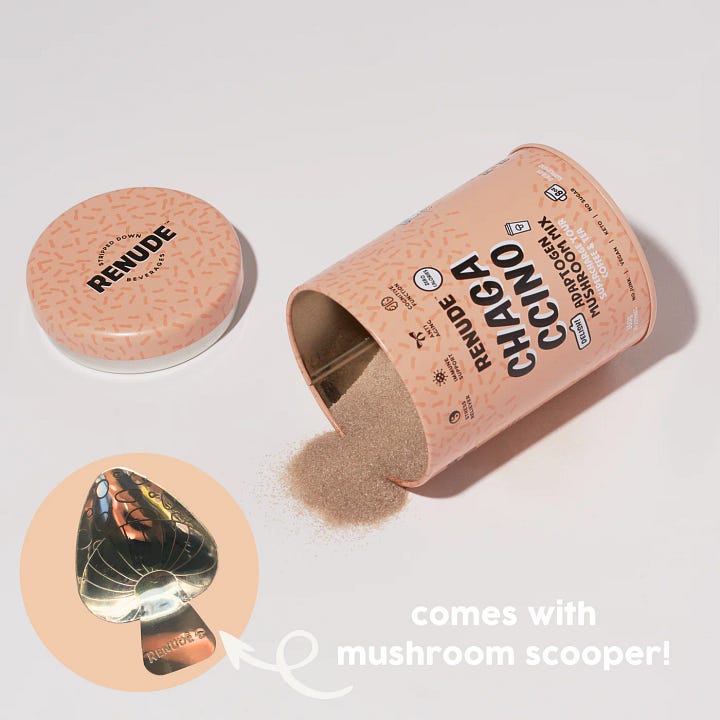Hi friends,
Can you believe we’re in the last few days of Summer? I know everyone is already in Fall mode, but it doesn’t officially start until Sunday, so I’m holding on to the last few moments of my favorite season.
It’s time for a “coffee talk,” literally and figuratively. For years, I swore by my morning coffee ritual of having it on an empty stomach, believing it was the secret to keeping me "regular" - a sentiment I'm sure many of you, especially women, can relate to. But I learned that coffee shouldn’t be the only way you’re able to go to the bathroom…there’s likely a larger gut health issue lingering. A year ago, I made a simple change to starting my day with hot water, lemon, and a pinch of Himalayan sea salt and it was such a gamechanger. Now, I enjoy my breakfast first, followed by my “Superwoman Coffee” (more on that below) either with or after my meal.
Let's dive into why timing matters and how to make your coffee ritual work for your hormones, not against them.
☕️ The Empty Stomach Coffee Conundrum
While that first sip feels like liquid motivation, here's what happens when you drink coffee on an empty stomach:
Cortisol Spike: Caffeine stimulates cortisol production, which is already at its peak in the morning. This can lead to increased anxiety and potential adrenal fatigue over time.
Blood Sugar Rollercoaster: Without food to buffer caffeine's effects, you might experience rapid spikes and crashes in blood sugar, leading to energy dips and cravings later.
Digestive Stress: Coffee's acidity can irritate your stomach lining when consumed without food, potentially leading to digestive issues.
Long-Term Effects of Coffee on an Empty Stomach
Consistently consuming coffee first thing in the morning can lead to:
Chronic elevated cortisol levels, potentially contributing to anxiety and weight gain
Disrupted circadian rhythms, affecting sleep quality
Increased risk of insulin resistance
Potential exacerbation of hormonal imbalances, particularly in women
A Better Morning Routine
Instead of immediate caffeine, try this sequence:
Hydrate: Start with a glass of water to rehydrate after sleep. Make sure to add in electrolytes or fruit/citrus/sea salt to help mineralize the body.
Nourish: Eat a protein-rich breakfast to stabilize blood sugar.
Caffeinate: Enjoy your coffee with or after your meal. Studies show that coffee affects you better if you have it between 9:30 AM - 11 AM.



The Organic Coffee Advantage
Now, let's talk about the quality of your coffee. Choosing organic isn't just a trend—it's a health decision.
Why Organic Matters:
Pesticide-Free: Conventional coffee is often heavily sprayed with pesticides. Organic coffee ensures you're not ingesting these harmful chemicals.
Mold Prevention: Organic farming practices often result in better mold control. Mycotoxins (toxic compounds produced by molds) in coffee can contribute to health issues and hormonal imbalances.
Environmental Impact: Organic coffee farming supports soil health and biodiversity, which indirectly benefits our overall health.
Nutrient Density: Organic coffee often contains higher levels of antioxidants and beneficial compounds.
Choosing Quality Coffee: Check out My Favorite Brand Here
Look for USDA Organic certification
Seek out brands that regularly test for mold and mycotoxins
Consider single-origin coffees, which are often easier to trace and verify for quality
My “Superwoman Coffee”
This is how I make my coffee work for me - to keep me satiated without blood sugar spikes and remineralize my body at the same time (I’ve linked my favorites in green):
Collagen (1 Tbsp): Supports skin health, joint function, and can help balance blood sugar.
Organic Protein Powder (1 Tbsp): Adds satiety and helps maintain stable energy levels. I usually just add a tablespoon as my milk or creamer with a protein boost!
Cinnamon (1 Tsp): Can help regulate blood sugar and adds natural sweetness.
Irish Sea Moss (1 Tsp): Contains 92 essential minerals! It is a bit salty, so skip this if you don’t like that.
Maca (1 Capsule): An adaptogenic herb from Peru that can help balance hormones, as well as boost your libido, fertility, and energy. More for women dealing with hormonal issues or menopause, but there is one for men too that can help boost testosterone levels.




Coffee Alternatives
If you’re looking to change up your mornings or want to replace your afternoon cup of coffee with an alternative, here are my recommedations.
Matcha Tea: Packed with antioxidants and L-theanine, an amino acid promoting relaxation. While matcha does contain caffeine (typically less than coffee), it delivers a sustained energy boost that lasts longer instead of a big jump like coffee can tend to do.
Mushroom Coffee: Adaptogenic mushrooms like lion's mane may enhance focus and cognitive function. (Typically caffeine-free)
Dandelion Coffee: Made from dandelion root, it boasts prebiotic benefits, supports gut health, and helps with detoxification. (Naturally caffeine-free)




The Bottom Line
Coffee isn't the enemy, but timing and quality matter. By prioritizing hydration and nutrition before your organic coffee, you're setting yourself up for more balanced energy levels, improved digestion, and better long-term hormonal health.
Remember, small changes can lead to significant improvements. Why not give this new routine a try and see how it impacts your energy and overall wellbeing?
Cheers to your health!
Roya




